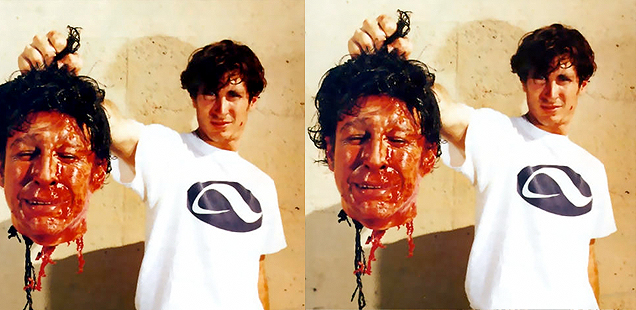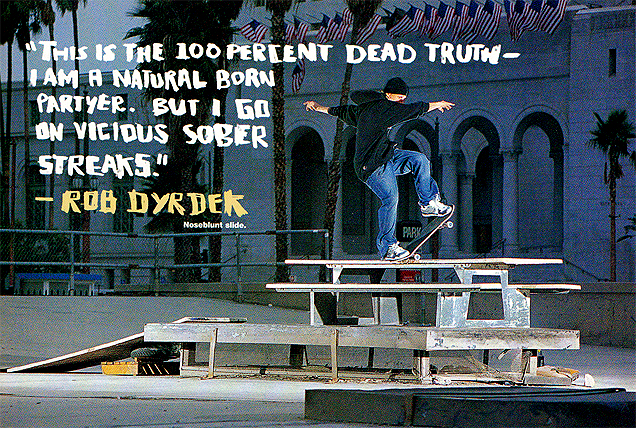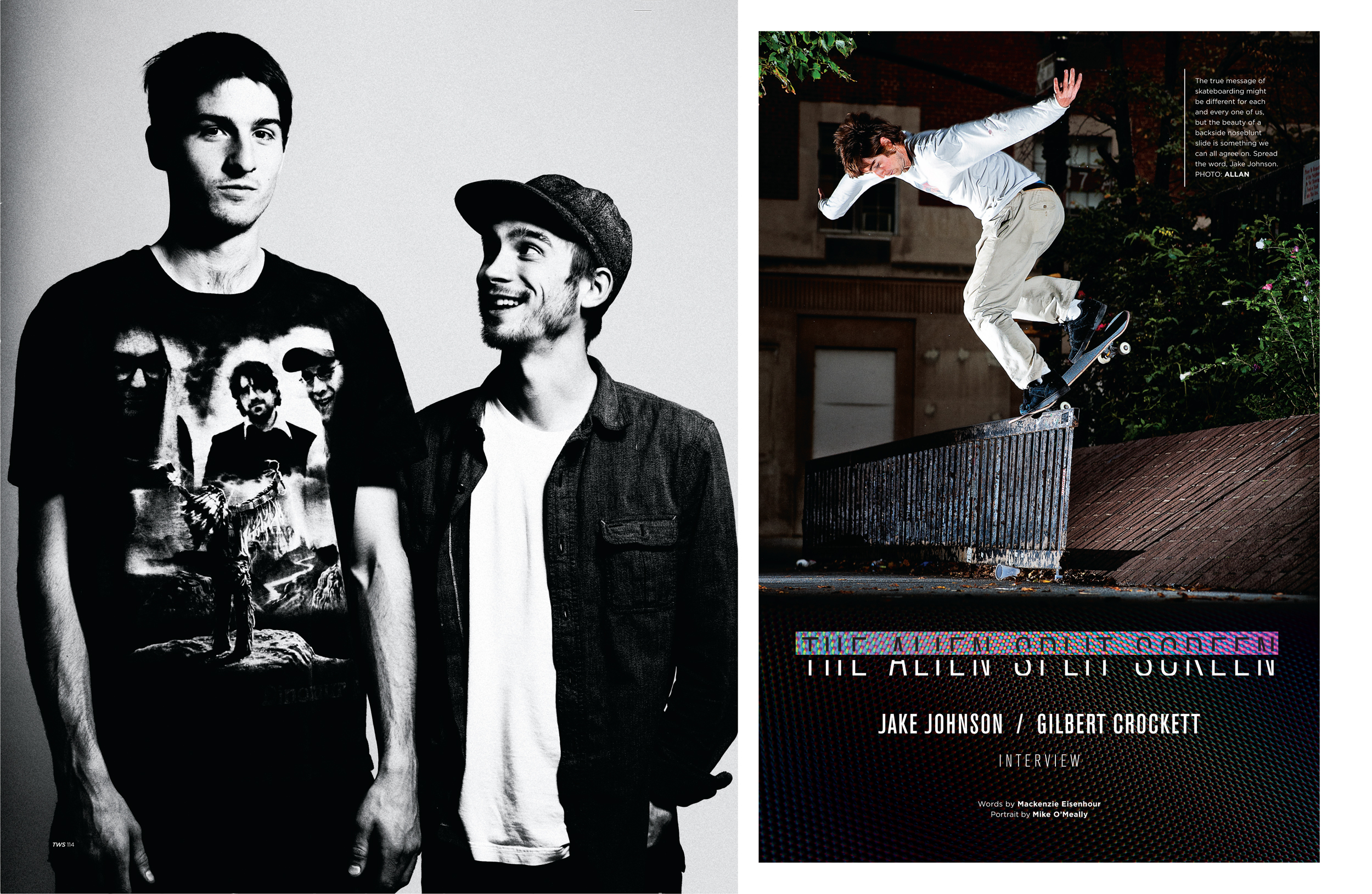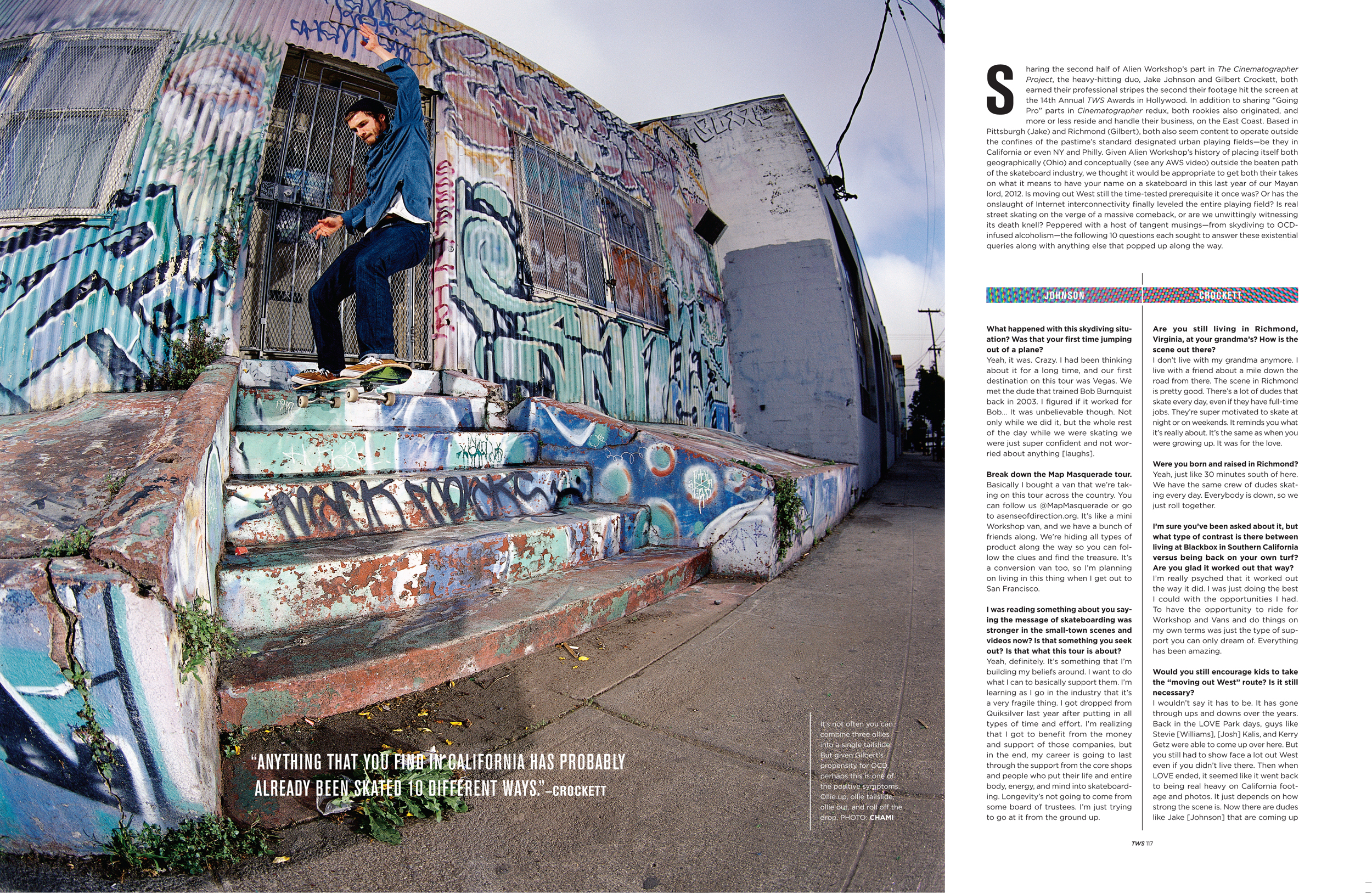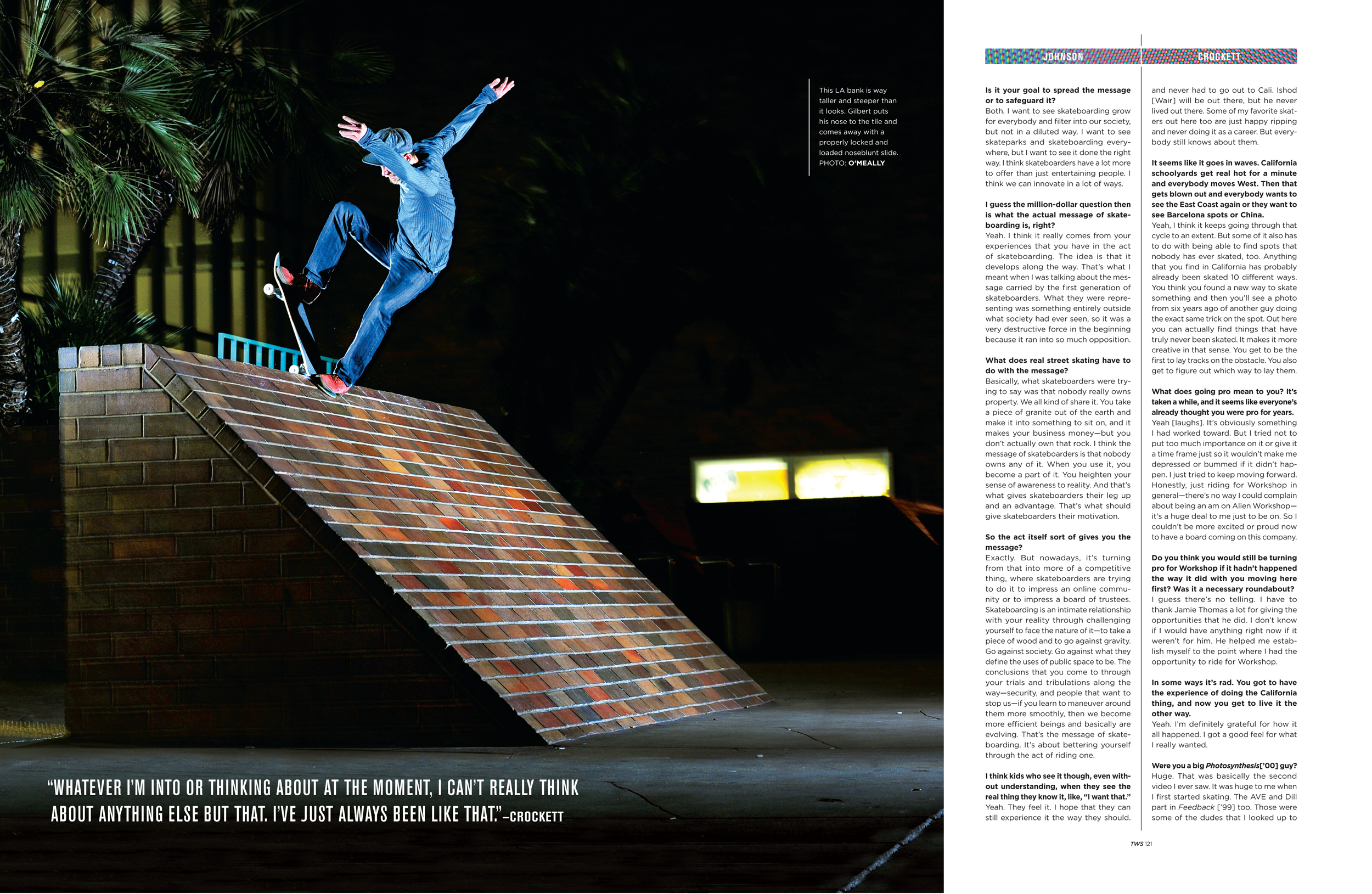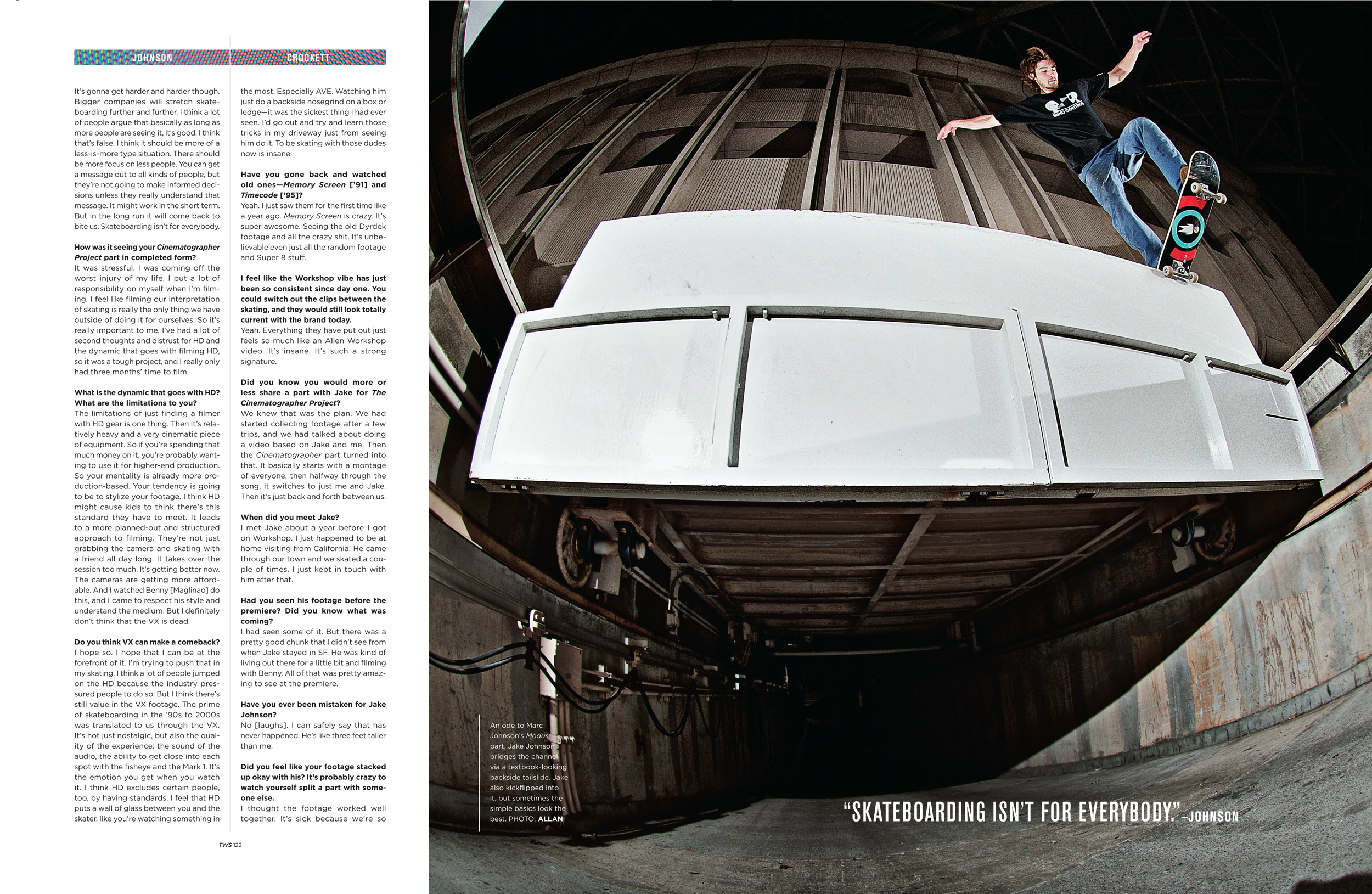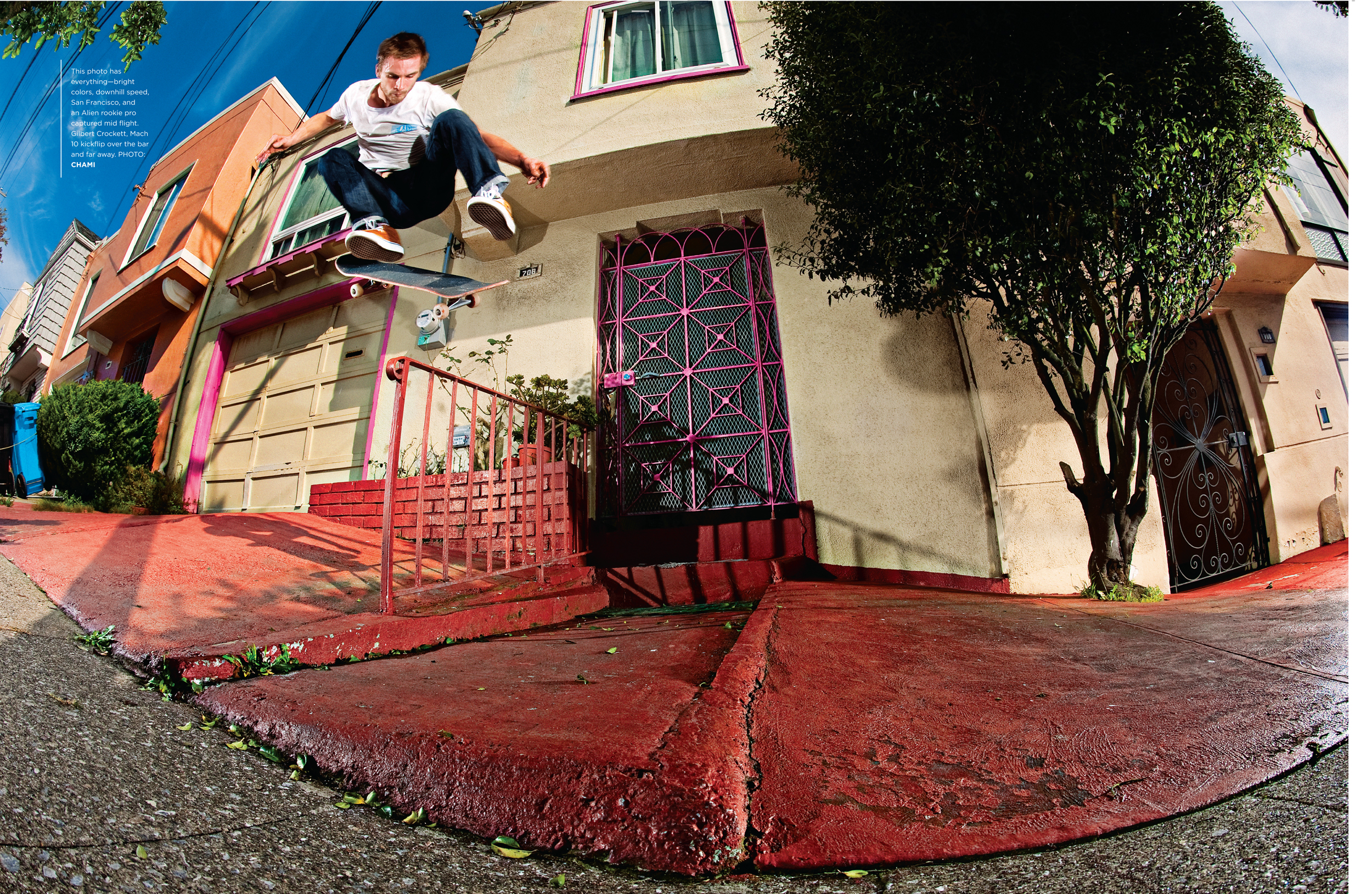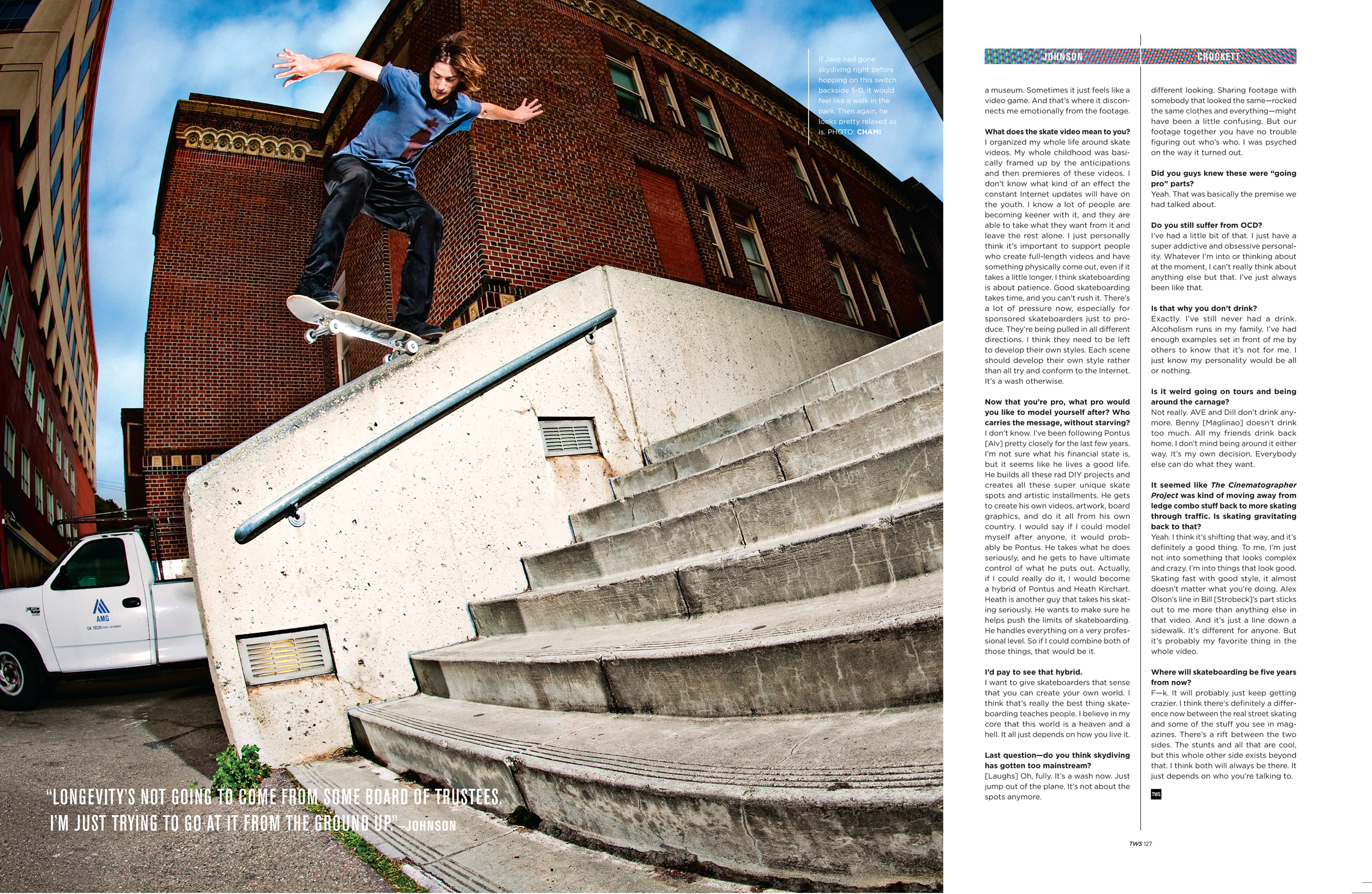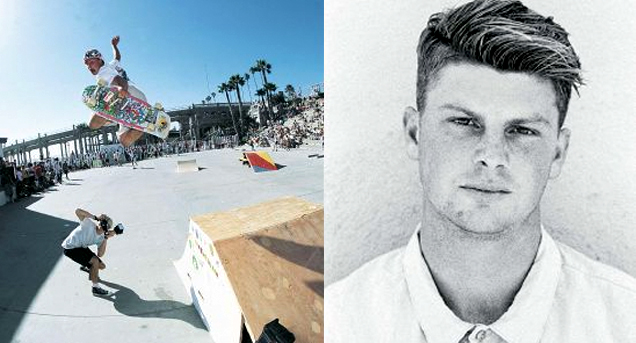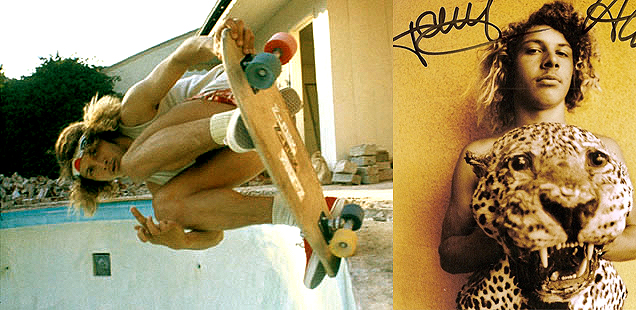Bastien Salabanzi Interview: The Lost Part
 Thursday, March 20, 2014 at 10:47AM
Thursday, March 20, 2014 at 10:47AM 
Bastien's portrait from his Skateboarder Interview back in 2004, at the height of filming a part that would disappear for a decade.
All Photos: Oliver Barton | Words: Mackenzie Eisenhour
Lost footage has always been somewhat of a skate nerd wet dream. The prospect of something so incredible—so Eifel Tower monumental, had it appeared when first filmed—just sitting on a shelf for years almost makes the footage increase in enigmatic value. So much so that finally watching it feels like crawling into a pixel generated time machine; beamed off to an alternate universe of what might have been.
Has a part this good ever been held for this long? I can’t think of any off hand. There was the notorious Muska part from Welcome to Hell, but that part more or less surfaced only a short while later in Fulfill The Dream. There were recent rumors of a full Jovantae Turner part from Video Days, but that may be more wishful thinking than any type of actual completed part sitting in Spike’s analog tape vault. There was also longstanding gossip of full parts from the non Tim and Henry names of the ’92 Blind team (Guy, Rudy, and Lotti), but again, those may be more urban myth than reality. Last year’s talk of a Ty Evans blocked Marc Johnson part for Tiltmode also comes to mind, but that part was supposedly more on the “throwaway,” fun/dorking around side than a straight up game-changing NBD fest (That one from Marc was in Pretty Sweet.)
Bastien’s “Lost” Flip part seems truly unprecedented in terms of the impact the footage probably would have had at the time. Especially given that Bastien essentially went underground both sponsor-wise and geographically (returning to Europe) directly following it. These would have been serious groundbreaking (and possibly life/career arc changing for Bastien) NBD hammers back then—coupled with just how long it has summarily been mothballed (A decade!), and just how good it still looks today. Meanwhile, the entire Flip, Sorry saga is steeped in so much drama of it’s own that any footage from that era carries added weight regardless.

The Sacto triple set fakie flip was most definitely NBD back in '04.
With all that said, I really wanted to get Bastien’s take on how he felt to finally see it come out. I can only imagine how heavy the emotional ties to the footage are given everything that happened in his life since. I pictured the final release of this part as the symbolic cathartic resolution to that entire chapter of his life. And while I at first felt a slight hint of anger that the part hadn’t come out sooner, I think a big tip of the hat should go to Ewan Bowman and everyone at Flip for making the effort to finally put it out. In some ways, at this point, it might just have been easier to let sleeping dogs lie and let it die on the vine.
You’ll always hear people saying how good Bastien was in those early years, but you’ll really never grasp exactly how insane it was to watch him skate firsthand. He just did not miss a trick. It looked like he could learn anything within something like three tries. And he would be talking to you as he did it. I know everyone says this or that person was “the best.” But when people say it about Bastien—there’s almost a different type of intonation—they really mean what they're saying.
Here, along with Oliver Barton’s photos from Bastien’s ’04 Skateboarder Magazine interview (shot during the filming of the “Lost Part”) is his take on most of the things mentioned above. Now get this man a board sponsor.
This could be my favorite switch varial heel ever, barring any rendition by Keenan Milton obviously. Downtown LA.
How did it feel to see the “Lost Part” footage finally come out? I can only imagine it felt amazing.
Yeah for sure it was nice to see it come out, even ten years later. I never thought it would been seen so I’m stoked it's finally out there.
When did you hear about it? Did Ewan (Bowman) contact you before it went up?
Yes, he did. He sent me an email and told me he was working on the edit and wanted to put it out soon after the new year.
Who did you watch it with the first time? Was it like getting into a time machine?
I was home by myself the first time i watched it. Yes, it was like a good flash back moment. It did bring back a lot of cool memories. Definitely.
Could you remember specifically all the tricks in there? Was there anything you forgot about?
Oh no! Dude, I think I probably forgot half of the tricks in this part. I mean it was ten years ago you know.
Can you run down the day (who was there, how it went down) that you got the cab flip front board in Melbourne?
Well it was really late—maybe one in the morning when I skated it. I know that Ewan, Andrew Mapstone and a few local friends were there too. I didn't try it on any other rails because i thought that one would be perfect to try it on. I didn't do it right away. It probably took me thirty tries maybe more.

The backside nollie and Cab flip stair line.
Run down the session where you got the fakie flip at the Sacramento triple set.
It was during a night session during a skate trip in Sacramento with the Flip team. I was shooting with Oliver Barton at that time for the Skateboarder interview. I remember that a few tries before I made it my board fell right on the edge of the tail. I had to pull off a big piece of it off. I was pretty bummed about it. The run up to the set is slightly down hill. That really helps a lot.
What trick in the part brought back the best memory?
I don't have one in particular. But definitely all the tricks in Australia bring me awesome memories. It's one of my favorite trips I've ever been a part of. It was so much fun.
Had you tried to retrieve it over the years? Even just the cab-flip front board? Who was blocking it?
I thought about it. But to me it was Flip's footage and I didn't try to get it back. I don't think anyone was really blocking it, it just turned out that way.
Do you think your life would be on a different path if this part had come out almost 10 years ago? I don't think so but we'll never know.
How come you don’t do more backside 360 flips? The one in that OZ line was rad!
Thanks mate! I don’t know, I still do some here and there. Maybe I should do it more often. Haha!

Switch ollie blaster at the Sepulveda gap in West LA.
I noticed at the end of the part they had a clip of you sitting at Uni high. To me it was kind of a nod to Nyjah since his cab-flip front board there (on the Uni rail) was the second to last trick in his Fade to Black part. The same trick you did on the Melbourne Gold rail, 10 years later. Was it weird to see Nyjah do that trick?
No it wasn't. I saw him during Street League throwing some of those moves down so I knew he could do that trick. I was really blown away by the backside 360-kickflip lipslide. That's a very hard trick.
Nyjah kind of called you out in that Free Lunch thing saying you had told him you were going to beat him at Street League. What did you think when you saw that?
Not much really. He just misunderstood what I told him. I didn't mean it like that at all. He didn't see that I was joking. I would never say something like that seriously. But i guess he thought I was. No big deal.
When were your kids born in this whole series of events?
My first son was born in May 2008 and my second one in May 2010. It's the best thing that ever happened in my life. I love to talk with them and see my sons evolving, learning, playing, or laughing. Only parents can know how infinite is the love for our kids. They're my most precious things in this world. Lao will turn 6 this year and Jazz is going to be 4 years old.
With this footage out have you been able to finally make peace with everyone there (at Flip)?
The relation between Flip and I has always been peaceful. They will always be my first family when I first came to the states. Geoff (Rowley) welcomed me in his house like a brother. I have learned so much with all those guys. I have so many awesome memories traveling the world with everybody.

Nollie heel front boards back in '04 where no joke. Can't think of one before this one, nor have there been many since.
After Jart, have you been looking for a new board sponsor?
No I haven't. Thanks to Bud skateshop. They hook me up with their boards and they’re super good. I'll see what happens. No rush.
Would you go back to Flip if they asked you?
Never say never.
Are you still skating Street League this year?
Yes for sure. I'll be there and looking forward to it.
Who impresses you most in person at Street League?
Probably Shane O’Neill. Just because I had never seen him skate in person before and I was truly amazed by how much board control he has.
Who do you miss seeing everyday most from the Sorry days?
I was good friends with everyone from the team so it's tough to answer. I always had the best times whenever Ali was around though. It was non-stop jokes, laughing or playing guitar together. I love Ali.

The voodoo child staple: backside flip with classic Bastien form.
When was the last time you ran into Tom (Penny)?
I saw him last year in Munich during Street League and he stops by Bordeaux from time to time as well.
Whatever the circumstances, it must feel good to have that footage finally out. Are you moving forward with a positive outlook from this?
Well yes, it feels like a closed chapter sort of with this footage finally out. I'm happy Ewan put it out there.
Can you top that part?
No, I can't.
The Lost Part, 10 Years later.


